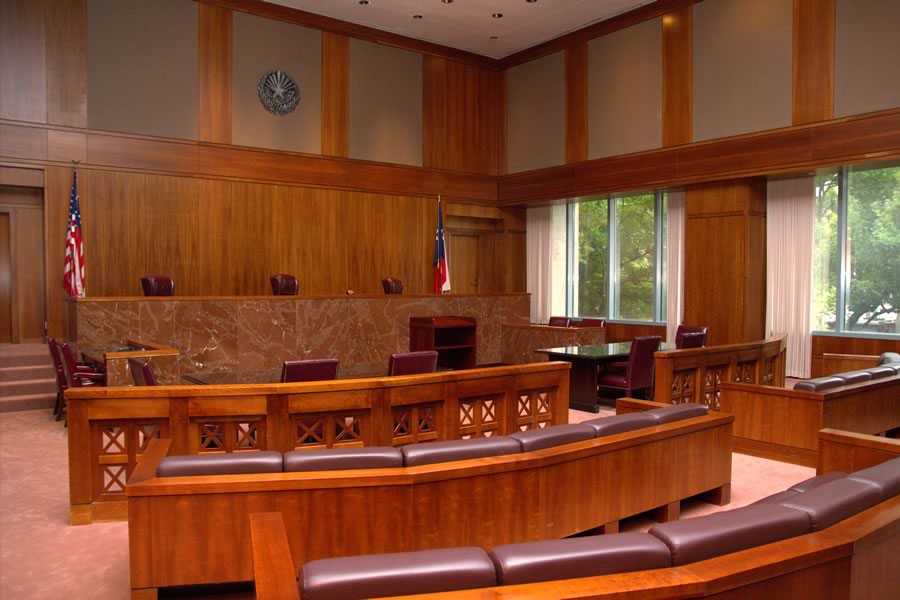In a disappointing decision on Thursday, a three-judge panel of the Third Court of Appeals reversed the district court ruling to strip the air permit from Vulcan Materials for its proposed 1500-acre quarry between New Braunfels and Bulverde. The appellate decision effectively restores the TCEQ air quality permit to Alabama-based Vulcan Materials, sidestepping contamination issues raised since 2017 by an alliance of Comal County citizens, concerned community groups, and organizations such as Comal ISD and Greater Edwards Aquifer Alliance.
In November 2019, TCEQ commissioners granted an air permit to Alabama-based Vulcan Materials for the portable rock crusher in its planned quarry. Left with no other options, the alliance sued TCEQ to cancel the permit. In March 2021, trial court judge Maya Guerra Gamble ruled overwhelmingly in favor of Friends of Dry Comal Creek and Stop 3009 Vulcan Quarry, reversing and vacating TCEQ’s approval of the Vulcan air permit.
Vulcan’s proposed open-pit limestone mining operation in the Texas Hill Country would stretch across nearly three miles of the environmentally sensitive Edwards Aquifer Recharge Zone (primary water supply for over two million people, including the cities of San Antonio and New Braunfels). Neighbors are concerned about air pollution, water supply and quality, truck traffic, destruction of caves, and decreased property values that could result from the location of this heavy industrial facility in a residential area populated by over 15,000 people.
Opinion Written by Retired Judge
The Thursday opinion was authored by an unelected, retired judge: J. Woodfin Jones, sitting “by assignment.” Jones is not one of the current six elected judges on the Texas Third Court of Appeals. His opinion uses the term de minimis no fewer than five times, repeatedly claiming that expected contamination levels (based on out-of-date 2017 modeling data submitted by Vulcan) are so low that no further investigation is needed. However, the air permit would allow Vulcan’s rock crusher to emit over 95,000 pounds of particulate matter, nitrogen oxide, sulfur dioxide, carbon monoxide, and VOCs into the Texas Hill Country air annually. Furthermore, without a full accounting of the facts, the actual amount of pollution this facility would produce could be much higher than the permit allows.
OK for Vulcan to Keep Hiding Data
Jones also opined that while there is a chance Vulcan’s crystalline silica emissions would exceed established pollution limits, Vulcan need not disclose the sample data used to run its air pollution modeling (concealed from the public and TCEQ, claiming a “trade secret” excuse). Apparently, we should take Vulcan’s word that its still-concealed data—the very basis for the modeling and these assertions of compliance—is accurate and reliable.
Continuing with the theme of pollution so small, we don’t need to worry about it, Jones wrote that contamination from mining, product transport, roads, and the quarry itself does not need to be considered; and that it was acceptable to predict background air pollution levels using data from monitors located 12 miles and 28 miles upwind from the proposed quarry location.
In perhaps its most stunning conclusion, the appellate panel admits that the SOAH administrative law judge and TCEQ exercised bias in favor of data from Vulcan and their agency (over Comal County citizens and scientific experts). But “that was the agency’s [TCEQ’s] province, and neither we nor the trial court may second-guess its decision.”
In Vulcan We Trust
David Drewa, director of communications for Stop 3009 Vulcan Quarry and Preserve Our Hill Country Environment, stated, “This decision is wrong—and a slap in the face to the thousands of concerned citizens in Comal County who have worked tirelessly over the past five years fighting to protect our families, our natural resources, and our beautiful Texas Hill Country from pollution generated by an out-of-state corporation.”
“The panel showed no regard for relevant legal issues raised by Texans living and working in the area, and essentially concluded: Vulcan’s claims seem fine, and we trust them; no need to verify—or even see—the underlying data,” Drewa said.
Milann Guckian, president of Stop 3009 Vulcan Quarry and Preserve Our Hill Country Environment, expressed concern: “I thought the opinion sounded a lot like something right out of the TCEQ commissioners’ handbook. It seems to me that the judge missed the point of our whole argument. The silica content data came from Vulcan and we never had an opportunity to look at, much less analyze, their samples. The ALJ and SOAH didn’t allow our experts to testify in the hearing either so we couldn’t counter Vulcan’s claims.”
What’s Next?
In the wake of this setback, citizens groups are assessing future options, including rehearing requests and appeal to the Texas Supreme Court. Stay informed by visiting www.stop3009vulcanquarry.com and following our Facebook page for news updates.
- Third Court of Appeals Panel Opinion (September 29, 2022)
- Third Court of Appeals Panel Judgment (September 29, 2022)

Related News
District Court Issues Final Judgment Order Remanding Vulcan’s Air Permit
April 3, 2021
Travis County District Court Judge Maya Guerra Gamble issued her final judgment order remanding and vacating the air quality permit TCEQ granted to Vulcan Materials.
Comal Citizens Triumph Over TCEQ and Vulcan Quarry in District Court
March 5, 2021
Judge Maya Guerra Gamble, 459th District Court, Travis County, reverses and vacates quarry air permit granted by TCEQ to Vulcan Materials.
December Holds Important Dates for Comal County Citizens
December 4, 2018
Latest developments and news updates related to the proposed quarry between Bulverde and New Braunfels, Texas. Upcoming TCEQ public meetings and deadlines.